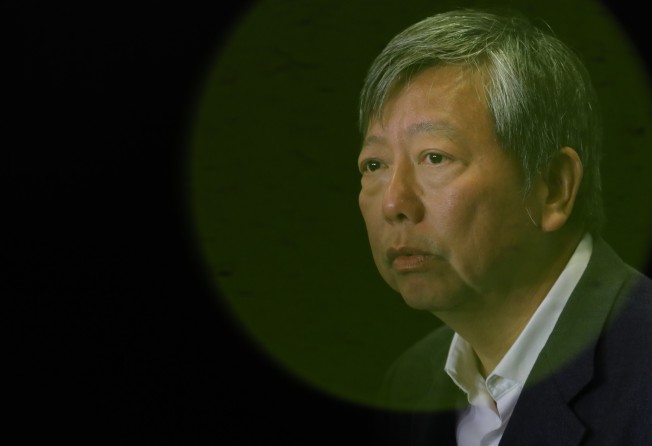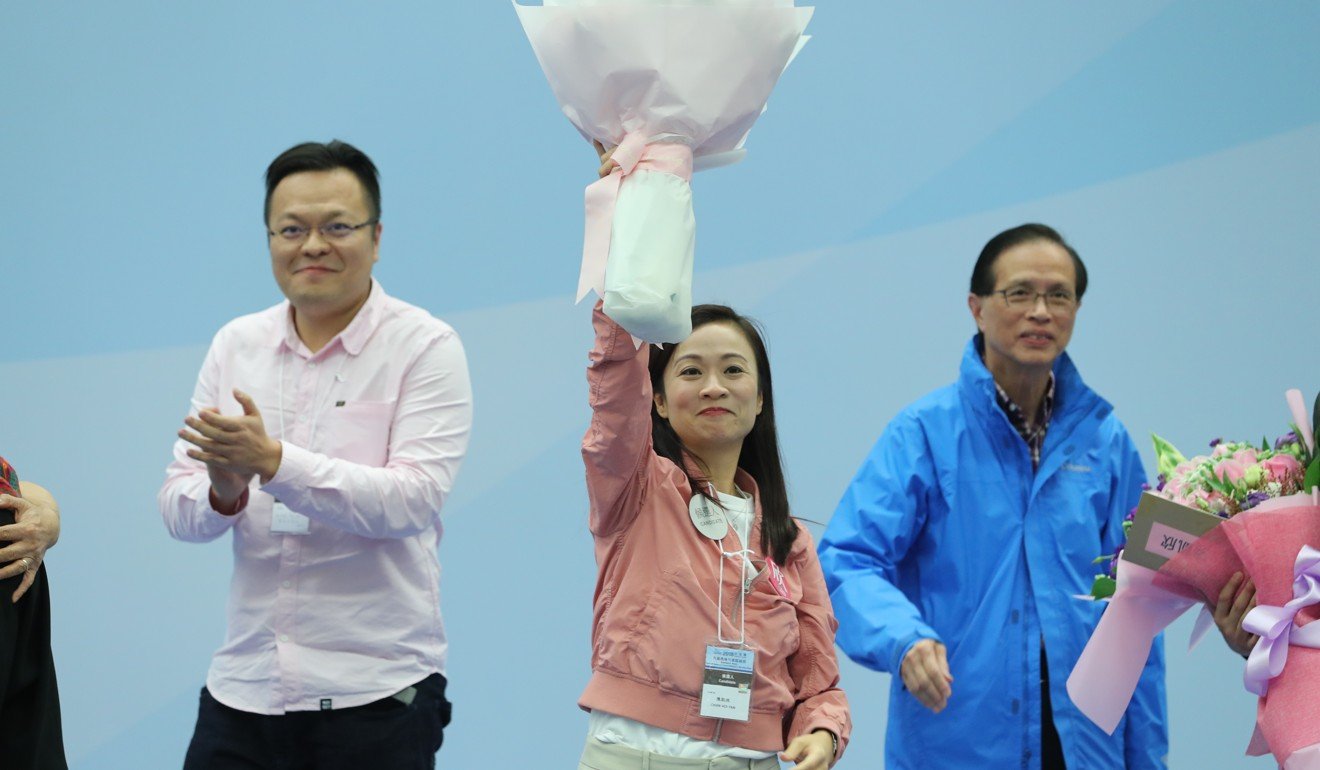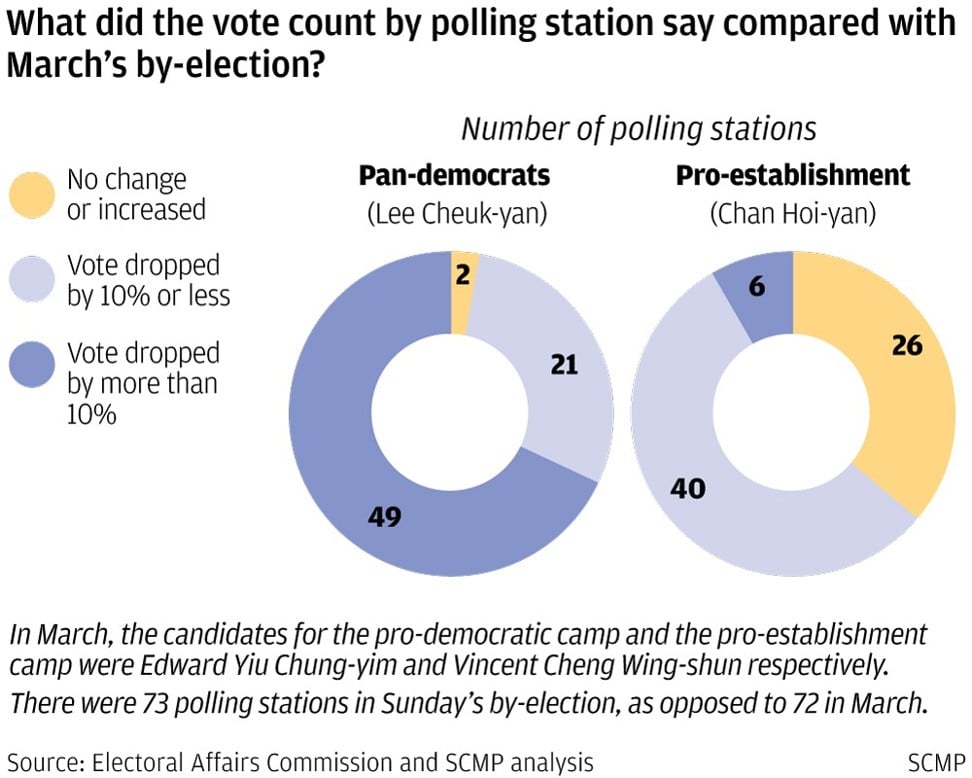Failure to woo working-class voters and localists cost Hong Kong pro-democracy stalwart Lee Cheuk-yan by-election, poll data shows
- Lee lost to pro-establishment rival Chan Hoi-yan, a former journalist and political assistant who took 106,457 votes, or 49.5 per cent
- His age and Labour Party background could have counted against him, analyst says

A failure to attract public housing tenants and localists led to Lee Cheuk-yan’s loss in Hong Kong’s key legislative by-election on Sunday, voting data suggests.
Lee, the 61-year-old pro-democracy stalwart, lost to pro-establishment rival Chan Hoi-yan, a former journalist and political assistant, ending the opposition camp’s hopes of regaining veto power in the Legislative Council.
A total of 216,522 people, or 44.4 per cent of those registered, voted in the Kowloon West constituency.
Chan took 106,457 votes, or 49.5 per cent. Lee, running in place of ousted lawmaker Lau Siu-lai, got 93,047 – or 43.3 per cent – while Frederick Fung Kin-kee, a former ally of the pan-democrats, got 12,509 votes, or 5.8 per cent.
In the run-up to the by-election, critics said Fung risked taking votes from Lee and costing his former ally the battle. But the pair got 105,556 votes between them, 901 fewer than Chan, suggesting a split vote was, at the very least, not the pro-democracy camp’s main problem.
Vote counts for each of the constituency’s 73 polling stations were released on Monday morning.
They revealed that Lee, who sought to attract voters from the working and middle classes, fared badly on some public housing estates, where many of those people live.
At a polling station on Tak Long Estate, a new public housing estate in Kai Tak, Chan bagged 2,512 votes to Lee’s 1,207. Lee suffered another huge defeat at a polling station on Kai Ching Estate, winning only 815 votes while Chan got 1,515.
In addition to Shek Kip Mei Estate and Chak On estate, these four housing estates were among the 10 constituencies Lee suffered the greatest defeats.
Ranking 73 poll stations in terms of median monthly income from the 2016 population by-census, 39 fall below the city’s median income of HK$15,500. Lee’s share of the vote lagged behind Chan’s by more than 10 per cent in 20 out of the 39 stations.
Conversely, among the 34 stations with voters living above the median income, Lee won nine and suffered a defeat of 10 per cent or more in just five. An interesting point to note is that for the richest constituency with median income of HK$50,000 in Kowloon Tong, Chan took 55 per cent of the vote while Lee got only 38 per cent.
In a March by-election in the same constituency, pan-democrat Edward Yiu Chung-yim also suffered sizeable defeats on public housing estates, and was criticised for focusing too much on online campaigning.
Yet, even having doubled his on-the-ground campaigning, with the full support of the pro-democracy camp, from veteran Martin Lee Chu-ming to young activists like Demosisto’s Joshua Wong Chi-fung, Lee failed to narrow the margin.
Chinese University political scientist Ivan Choy Chi-keung said Lee – a veteran activist – might have struggled to attract young pro-democracy voters
“Lee is relatively old. It was difficult for him to get young people’s votes and votes from those supporting localism and Hong Kong’s independence,” he said.
Lee is a core member of the Hong Kong Alliance in Support of Patriotic Democratic Movements of China, which has organised annual candlelight vigils for those who died in 1989’s Tiananmen Square crackdown.
Back in the 2016 general elections, localist candidates, including disqualified lawmakers Lau Siu-lai and Yau Wai-ching, took one-third of the vote in Kowloon West. Pan-democrat Au Nok-hin said those voters, who supported new voices, most likely found Lee to be an uninspiring choice.

“They think Lee was the pick of the old pan-democrats, a force that is receding,” he said, believing a way forward for pan-democrats was to seek out new faces and better links with localist groups.
Chan’s ability to get almost as many votes as her camp did in March – when it also won – surprised many.
Back then, almost the same number of people cast ballots in Kowloon West, and pro-establishment district councillor Vincent Cheng Wing-shun defeated Yiu with 107,479 votes, or 49.9 per cent. Yiu got 105,060 – 48.8 per cent.
A veteran pro-Beijinger who helped Chan’s campaign said they had doubled efforts in canvassing compared with the battle in March, conceding that Beijing’s liaison office in the city had pinned its hopes on victory, to retain the domination of Legco’s geographical constituencies.
Under Article 22 of the Basic Law, the city’s mini-constitution, no mainland Chinese authority may interfere in affairs which Hong Kong administers on its own.
In recent years, pro-democracy politicians and activists have criticised the liaison office for discussing elections with the pro-Beijing camp or helping it with election coordination. But pro-establishment politicians have said such moves do not amount to interference.
Additional reporting by Alvin Lum
